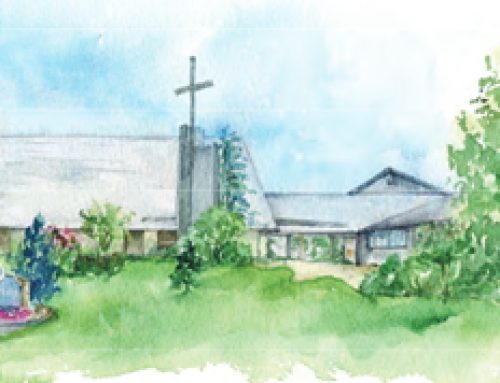FROM THE PASTOR’S DESK
Dear Parishioners,
Is the parable of the sower a positive or a negative parable? Is it a comedy or a tragedy? Like many of Jesus’ parables, this parable can be read in different ways. Therefore, it is up to us to decide which way to read it. Some would conclude that it is a tragic parable because much, if not most, of the seed does not grow. It is eaten by the birds of the air, choked by the thorns, or scorched by the sun. But others would see it as a positive parable of growth, because the seed that falls on the good soil produces a bountiful harvest of a hundred, sixty, and thirtyfold.
I believe that Jesus is calling us to hear the parable positively, to see it as a parable of growth. The parable is carefully shaped to fit the contours of our lives. After all, the parable is not about agriculture, but about human existence. It is not about seeds, but the Kingdom of God.
What this parable tells us about our life is this: We will never succeed in all of our projects and goals. We will never fulfill all of our hopes and dreams. We will never remain connected to all of the people who we love. Some of our hopes and dreams will not grow and will disappear as quickly as the seed that was eaten by the birds. Some of our projects and goals will start to grow, but then become scorched and wither away because of lack of root. Some of the people that we love will not love us in return. Others will form a relationship with us for a while but will not be able to adjust to new circumstances. In time our relationship with them will suffocate, like the seed that is choked by the thorns. Either because of our own mistakes or because of other circumstances, many of the hopes and dreams that we have will not come to fruition. Much of what we desire will be lost like seed that does not grow.
But this parable also includes a harvest–a rich harvest. For all the seed that does not grow, there is other seed that produces a hundred, sixty, and thirty-fold. I believe Jesus is calling us to focus on the harvest. For all the goals, for all the relationships, for all the dreams that were never fulfilled, this parable calls us to remember all of those realities that did grow, that did bless us and sustain us still. We must not focus on the parts of our lives that have failed or live our lives in guilt and self-pity. We cannot base our lives on all the what ifs. What if – I tried harder? What if – circumstances were different? What if – I made another decision? All of these what-ifs have no future. Attaching our lives to them is as useless as crying over spilt milk or over seeds that never grew.
Instead of lamenting about all the things in our life that did not happen, this parable calls us to rejoice in the things that did happen—in the goals we were able to achieve, in the hopes that we were able to realize, in the relationships that still support us to this day. They are God’s gifts to us. There might be many of our hopes and dreams that did not materialize, but the ones that did are enough to provide a bountiful harvest, a rich life.
So, is the Parable of the Sower a comedy or a tragedy? It all depends on how you read it. The same is true of our lives. We can choose to focus on all of our dead dreams and wrap ourselves in despair. Or we can choose to accept the harvest that has been given us with thankfulness and joy. How do you choose to live your life? What do you choose to see–a triumph or a tragedy? Only you can decide. Let those who have ears to hear, listen.
Peace,
Fr. Monteleone
To read the complete bulletin click here



